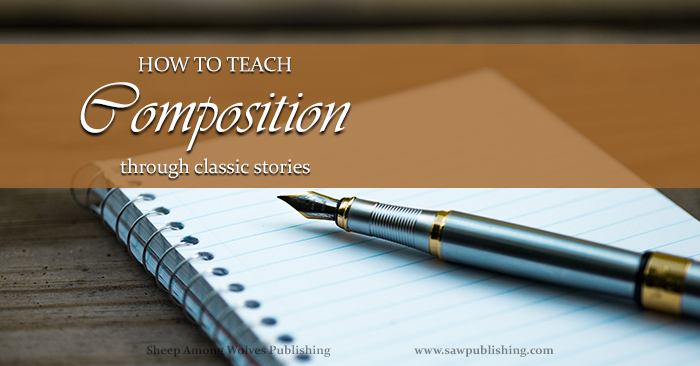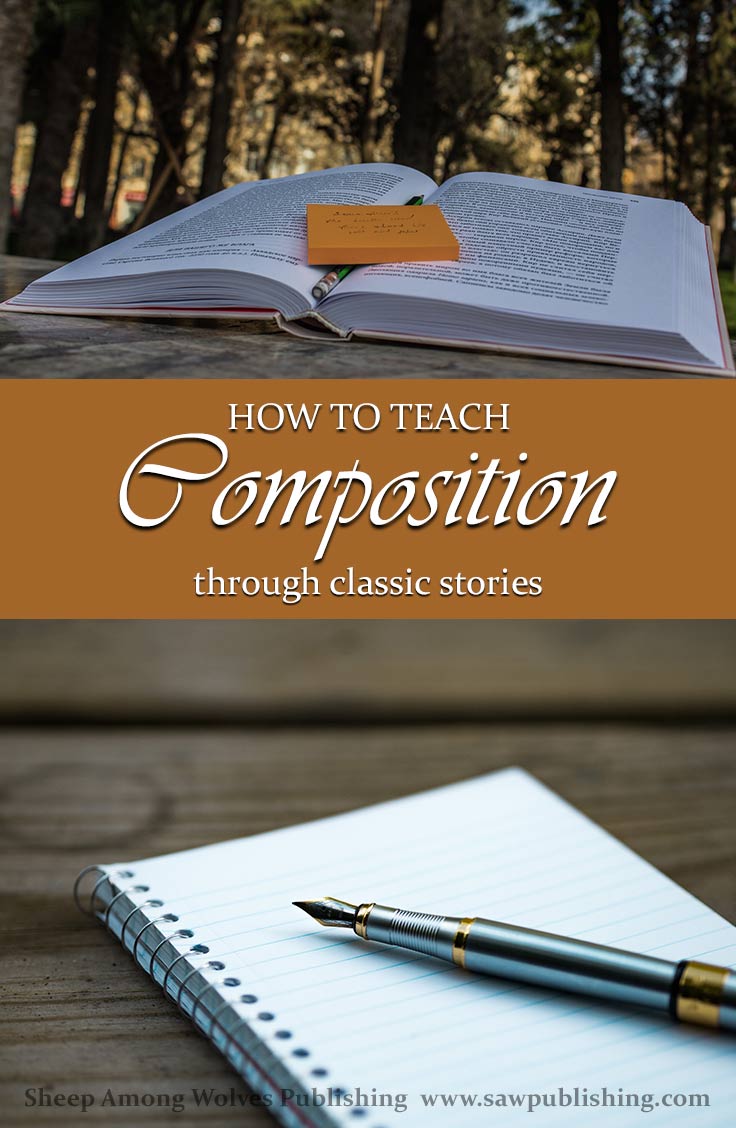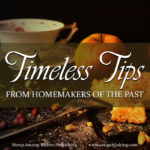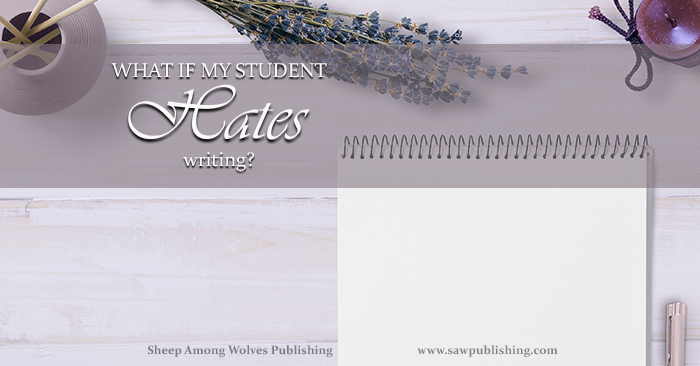How to Teach Composition through Classic Stories
 How to teach composition in an interesting, motivating, and effective way can look like an overwhelming task. For some strange reason, students can be remarkably unenthusiastic about writing assignments. Even those who like English sometimes show a surprising distaste for composition assignments.
How to teach composition in an interesting, motivating, and effective way can look like an overwhelming task. For some strange reason, students can be remarkably unenthusiastic about writing assignments. Even those who like English sometimes show a surprising distaste for composition assignments.
I can still remember a lengthy—and not overly-successful—attempt to convince my elementary-school teacher that I couldn’t write on any of the topics on her composition list. Not even the theme “My Favourite Book” succeeded in striking a chord. I didn’t have a favourite book, as I tried to explain. I was an insatiable bookworm, but I didn’t have a favourite book. I had a favourite series, but not a favourite book.
Looking back, this experience was probably not any more pleasant to my teacher than it was to me. But what elementary English student thinks about the teacher, in the face of a grim and unyielding composition assignment?
Composition Assignments from Days Gone By
 Today’s Timeless Tip from Educators of the Past comes to us from 19th century writer and teacher Edwin A. Abbott. Himself an experienced educator, holding the position of Head Master of the City of London School, Abbott nonetheless believed that home education was destined to be the way of the future—pointing to growing resources for women’s education as a proof that “in the next generation mothers will take a large part in the teaching and training of the young.”
Today’s Timeless Tip from Educators of the Past comes to us from 19th century writer and teacher Edwin A. Abbott. Himself an experienced educator, holding the position of Head Master of the City of London School, Abbott nonetheless believed that home education was destined to be the way of the future—pointing to growing resources for women’s education as a proof that “in the next generation mothers will take a large part in the teaching and training of the young.”
Abbott’s 1883 work, Hints on Home Teaching, was written to offer practical tips and advice to such homeschooling parents. Devoting an entire chapter to composition and grammar, the author introduces his prospective teachers to several different methods for building a student’s writing ability. It is one of these methods that provides the theme for today’s post.
Please note, that this post is not a review or recommendation of the entirety of Edwin Abbott’s Hints on Home Teaching. While the work contains much valuable information, the author’s opinions on religious education are not based on a belief in literal Bible history. Please use personal discretion.
The Value of Stories in Teaching Composition
Edwin Abbott advocated the fairly well-known use of letter-writing in teaching children composition, but after discussing the pros of this method, he goes on to suggest a more original technique which he considers at least as, if not more, successful a tool:
“Another method of teaching English Composition is to tell children interesting stories, and (some time afterwards) to require them to set down one of these stories in writing.”
“For older children, some of the stories of ancient history . . . can be made intelligible and attractive; but, for the younger, it will be more profitable to employ fiction, and the ordinary fairy tales will be found the best and simplest.”
How to Teach Composition through Classic Stories
Abbott’s way of teaching composition through classing stories was simple, although requiring a little forethought on the part of the teacher. Rather than making the tale a dictation exercise, the child was to be gradually familiarized with the story he would eventually write, over the course of an extended period of time.
“The favourite stories should be repeated several times before the child is asked to write them down. Thus, besides stimulating his imagination, you will have insensibly enlarged his vocabulary, and his store of idioms; and if you do not too much ‘speak down to’ the child, he will gradually shake off the first stiffness of a child’s style, and acquire flexibility and variety.”
The idea here is radically different from assigning fiction as creative writing. Rather than wanting the child to use their imagination, and develop original material, you are actually encouraging them to unconsciously study and imitate the style and effects of compositions that have already proved themselves lastingly successful.
Correcting Story Compositions
Once the student has written their story composition, the teacher has unusually fertile opportunities for bringing home the strength of any necessary corrections:
“Teaching by stories has two great advantages over teaching by letters. First, you can criticise the boy’s narrative, when dull and tedious, by reminding him that he has left out this or that point of interest; secondly, you can criticise faults of arrangement by pointing out how the disarrangement confused the story.”
“This cannot be done so well with a letter, which the pupil may naturally regard as a narrative of his own, which he tells as it occurred to him; but the story is yours, and the pupil more readily acquiesces in your right to dictate how it should be told, and appreciates the superiority of your version over his.”
In fact, story-based compositions allow you to grade traits of style and effect by a concrete standard, that both you and the pupil can readily appreciate.
Composition Doesn’t Have to be Boring!
My elementary-school teacher and I eventually came to a compromise. “My Favourite Book” was allowed to expand into “My Favourite Series.” Other than that, I still had to write the composition.
Looking back, we were probably pretty close to the mark with that assignment. After all, I was writing about stories I loved—stories that were worth loving—stories that had a lot to teach about the whole art of writing.
Yet how much more effective—and enjoyable—might students find this type of assignment if instead of writing about the stories they love, some of their compositions were allowed to consist of the stories themselves. I think Abbott has demonstrated that they wouldn’t lose any writing skills along the way!
Can you identify with the frustration of teaching a student who hates their English assignments? See our previous post:

How do you pick an English program that will ensure your students end up with a solid grasp of grammar? Far from depending on definitions or analysis, the best English foundation comes from the conversations your children hear and the books they read.

Timeless Tips from Homemakers of the Past is a great place to find encouragement as a keeper at home.

Why are good and great poems so hard to find? Why do so few poets seem to value the standard of good and great work? Today’s post is a challenge to parents to prepare the next generation of faithful Christian poets.

